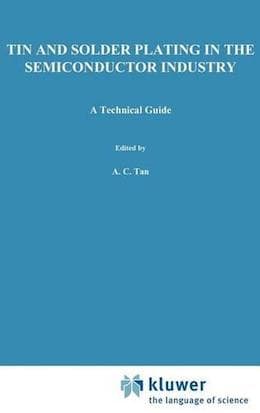
-----
Tin Electroplating onto Steel
2003
Q. Hi there,
QUICKSTART:
Nitrates are rarely if ever used for electroplating because they are powerful oxidation agents which fight, rather than assist, the opposite and desired process of reduction of dissolved ions to metal. And when nitrates are reduced by the reductive power of the electricity, they are not un likely to form noxious NOx gasses.
The most common anion for electroplating is sulphate. Sulfamate is mostly restricted to nickel plating. Chlorides usually cause too much stress except when used in moderation with other ions. Fluoborates are usually avoided when possible due to the special hazardous nature of fluoride chemistry.
I am a model train modeler, I would like to know how much TIN NITRATE (weight) is need to make a 2 molar solution in 1 liter of water. I wish to tin electroplate steel wheels on locomotives so as to stop the surface rust forming so the electrical pick up flows better with less resistance, the trains run on up 12 volts DC
Thanks,
- BALLINA, NSW, AUSTRALIA
A. I don't know where you got a recipe for tin electroplating using tin nitrate, but it will not be very good. There are two types of tin plating baths in wide use; the first is alkaline tin, using sodium stannate and the second is acid tin, using tin sulphate. I would personally use the acid tin bath as it can be deposited as-bright. In general, nitrates are bad news in electroplating, so avoid them.

Trevor Crichton
R&D practical scientist
Chesham, Bucks, UK
A. Isn't the good track nickel plated now?
James Watts- Navarre, Florida
2003
Q. Hi gary
I have a question with respect to the selection of tin as a choice of protective material for the steel wheels. The coating is obviously going to subjected to tremendous mechanical loading under such conditions. Would it be able to withstand the mechanical forces without failing/peeling off?
- Chennai, Tamil Nadu, India
June 4, 2008
A. Hi, Arun. Since we've been talking toy/model trains here, I can't picture "tremendous mechanical loading". If your situation is something other than toy trains, that's fine and we'd be delighted to talk about that, but please describe it so we can better understand what we're discussing. Thanks.
Regards,

Ted Mooney, P.E.
Striving to live Aloha
finishing.com - Pine Beach, New Jersey
Ted is available for instant help
or longer-term assistance.
June 4, 2008
Q, A, or Comment on THIS thread -or- Start a NEW Thread
